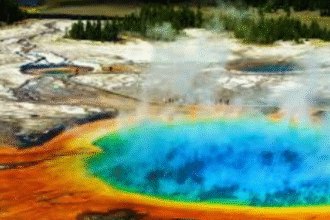The West Nile virus has been detected in mosquitoes in Northeast Philadelphia, sparking fresh concerns among residents and health officials. The alarming discovery was made during routine surveillance by the Department of Public Health earlier this month near Pennypack Park, an area frequented by joggers, cyclists, and families.
Philadelphia health authorities are now urging the public to take precautions to avoid mosquito bites, particularly as West Nile virus season peaks from mid-summer through early fall, when mosquito populations are most active.
Public Health Alert and Preventive Measures
Officials have already notified area doctors and clinics to stay alert for symptoms of West Nile virus in patients. Common signs include fever, headache, body aches, joint pains, vomiting, diarrhea, or rash. In more severe cases, the virus can lead to neurological illnesses like encephalitis or meningitis.
The Health Department is advising residents to follow three key safety measures:
- Wear long-sleeved clothing when outdoors
- Use insect repellents containing DEET
- Eliminate standing water in pots, containers, or anywhere mosquitoes can breed
A Survivor’s Harrowing Tale
For some, the warning hits close to home. Grace Wicks, a gardener from Chestnut Hill, shared her traumatic experience battling West Nile virus in 2022. What began as a simple mosquito bite escalated into brain damage and paralysis, requiring her to spend over 100 days in the hospital.
“It’s been a long road,” Wicks said. “I had to relearn everything—talking, sitting, walking. I started with a walker, then a cane, and now I can walk unaided.”
Wicks emphasized the need for increased awareness among the medical community. “It took a while for me to be diagnosed. That delay made my case much more serious.”
Scientific Background: What is West Nile Virus?
The West Nile virus is a single-stranded RNA virus from the Flaviviridae family, which also includes viruses like Zika, Dengue, and Yellow Fever. It is transmitted to humans primarily through mosquito bites, and while most people infected do not show symptoms, a small percentage can develop serious and sometimes fatal illnesses.
According to the Centers for Disease Control and Prevention (CDC), there were 1,132 reported cases of West Nile virus in the United States in 2022.
Philadelphia’s Response and Ongoing Efforts
The city is taking proactive measures by spraying larvicide in mosquito breeding areas to control the population and minimize the spread.
Gayle Mendoza, communications deputy director for the Philadelphia Department of Public Health, explained:
“When we detect our first mosquitoes that are infected with West Nile virus, we tend to see the spread of the virus among other mosquitoes throughout the city. That increases the risk for potential human infection.”
Residents are being encouraged to report any suspected or confirmed cases to the Philadelphia Department of Public Health at 215-685-6741.
Public Concern on the Rise
Local residents, especially those who frequent outdoor areas, are voicing concerns.
“These mosquitoes carrying diseases are very concerning,” said Nazir Robey, a local jogger. “It’s problematic, especially in places like Pennypack Park.”
As the summer continues, the presence of West Nile virus serves as a reminder to remain vigilant, take personal protection seriously, and support community efforts to reduce mosquito-borne illnesses.






